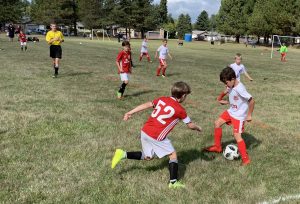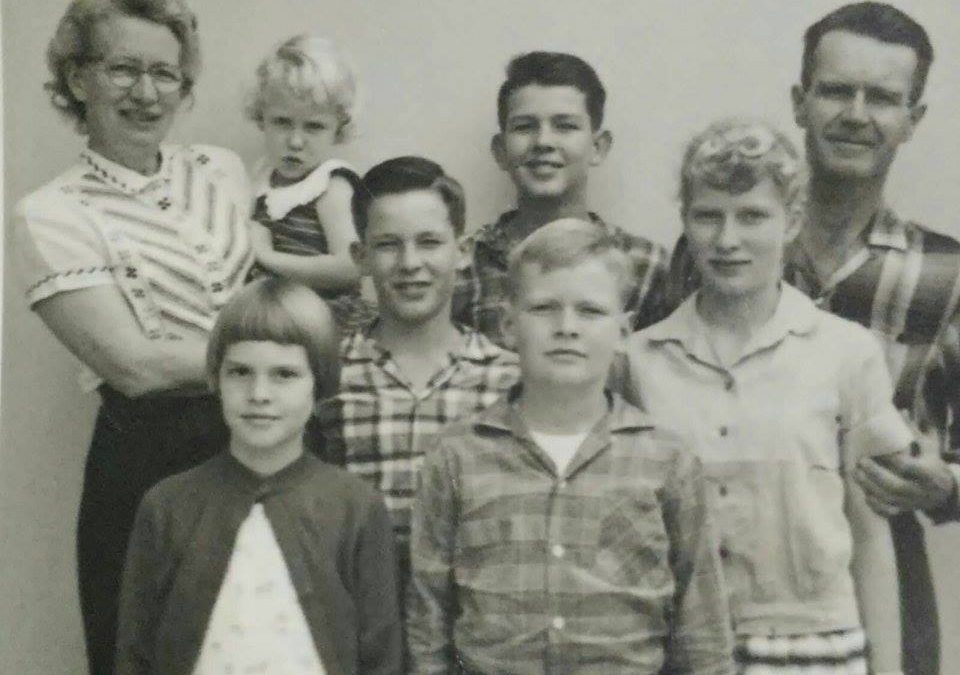My Family of Origin
Years ago, Ed and I were at a Thanksgiving dinner with six other couples in the home of close friends. We lived far away from any of our blood relatives and were pleased to be invited for the holiday. Our host got up to offer a toast before the meal.
“You are my family of choice,” he said.
A family of choice is a group of people that provides the support system we typical ascribe to members of our family of origin. But this group often doesn’t include our blood relatives.
The idea of having a “family of choice” was a new one for me at the time, and it felt like a privilege to be included.
According to Wikipedia, our families exist to provide a primary system of support in our lives. Ideally, a family maintains the well-being of its members and of society.
Hmmm.
Although I was taught to love and honor my family of origin, I can’t say that its members provided me with much, if any, support. In fact, some of them were blatantly adversarial. As I describe in my forthcoming memoir Love is Complicated, my parents were caring, loving people who dedicated their lives to founding and running a remote leprosy station in Paraguay. Parenting and supporting me were not their highest priorities. To continue my education, I was sent to live in the capital city of Asunción at the age of ten, resulting in a generally unsupervised and often unsupported life.
As adults, most of my blood family members are separated from each other by great distances. My parents moved back and forth from various locations in Paraguay to Goessel, Kansas, making almost thirty round trips between North and South America in their lifetime. Currently, a few of my siblings are spread out around the U.S., but most of them live in diverse areas of Paraguay. While I grew very close to my parents during the final decades of their life, the historically fragmented and non-supportive structure of our family was the only model I ever knew.
I was committed to doing the family thing differently for my own kids. Of course, if you’ve been reading my blogs, you know how completely I’ve failed to get it right.
But still, when my kids were young, I did what I could to make sure they saw me as their primary support system, and I was committed to being there for them until they were old enough for me to turn them loose into the world.
They’re grown now, and between us, Ed and I have four middle-aged children who are each distinctively different from one another. But until recently, we tried to behave as if everyone was equally liked and equally supported by treating everyone the same. If one adult child received a gift from us, we made sure the others received something equivalent. And we foolishly expected the same level of support from each of them as we’ve grown older.
But here’s the thing.
Board Certified coach Marcelina Hardy acknowledges what I think we all know but often don’t want to admit to others or even to ourselves: Most of us have one or more family members who are more difficult to get along with than others, potentially leading us to even dread interactions with them. As much as we want them to be different than they are, they either cannot or will not change. And as much as we want our relationship with them to change, that may never be possible.
And so I ask: Are all of our children and their partners really the support system that we wish to be part of? What other kinds of relationships might we now have with them as we all grow older? Are they the people we really like to be around, causing us to want to share with them the precious last years of our lives? Do they like us enough to want to invest in a relationship with us? Are they our family of choice? And are these even the right questions?

Last weekend during a break between our grandson’s soccer games (he’s the fierce #52), we had the good fortune of hearing the answers to some of these questions from a wise and loving friend. She gently suggested that it might be time to accept each member of our family as they are and not expect them to change. And maybe most important, to accept that relationships with different family members will differ, almost by definition.
Her point was quite simple: Have the relationship with each member of the family that is available. Be present and appreciate it as it is. Forget about all family members becoming your ideal friends and enjoy them as they are, rather than creating walls that define whether someone is in or not, or part of your family of choice or not.
Makes sense to me. Now, can I do it?


My father and my uncle unsuccessfully went in business together leading eventually to them not speaking with each other for decades. Rather than focusing on that broken relationship and putting our family energy into wanting it to change, possibly we would have been a more valuable support system for each other if we had concentrated on the remaining loving relationships that were available.
I divorced a cruel husband when my 2 boys were babies, thinking my own career could be picked up when they were older.
One son loved me and the other has never shown anything but indifférence towards me.
They both found families away from me and I remained single, never really getting on track with my career.
At 67, I am totally estranged from the second son and his 3 beautiful children who all live abroad where we had the meltdown, which I feel responsible for. My other son and I have always been close although he left home at 16 to live and work with his father and new family,and has his own 2 boys.
I always supported my boys and was honest and fair.
They enjoy successful and happy lives but I missed out totally.
Your last line is heartbreaking. A friend said to me just last night, as we were talking about grief: “Grief is not something you get through. It’s something you carry.”
May your load of grief be a little lighter, just knowing that many others carry it as well.